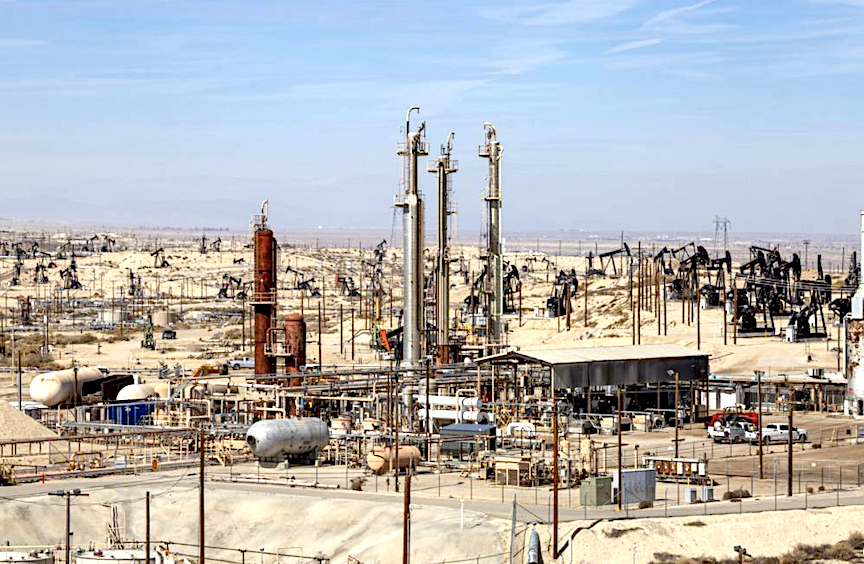KQED.ORG | LAURA KILVANS | FEBRUARY 14, 2024
PHOTO | BELRIDGE OIL FIELD IN KERN COUNTY OM 10-21-21 | CREDIT: CITIZEN OF THE PLANET / UCG / UNIVERSAL IMAGES GROUP VIA GETTY IMAGES
‘Fracking is a very dangerous, climate-change-accelerating, water-polluting, earthquake-causing process. … We’re really happy that California is finally taking the formal steps to officially ban some fracking in the state.’
— Chirag Bhakta, California director, Food & Water Watch
California oil and gas regulators have formally released their plan to phase out fracking three years after essentially halting new permits for the practice.
The California Geologic Energy Management Division (CalGEM) wrote that they would not approve (PDF) applications for permits for well stimulation treatments like fracking to “prevent damage to life, health, property, and natural resources (PDF)” in addition to protecting public health and mitigating greenhouse gas emissions.
“I’ve made it clear I don’t see a role for fracking in that future and, similarly, believe that California needs to move beyond oil,” Gov. Gavin Newsom said in a statement in 2021 when he initiated regulatory action to phase out new fracking permits.
Hydraulic fracturing injects liquids, mostly water, underground at high pressure to extract oil or gas. Oil companies say fracking has been done safely for years under state regulation and that a ban should come from the Legislature, not a state agency.
“These things truly exceed the limits of CalGEM’s legal authority,” said Kevin Slagle, vice president of strategy and communications at the Western States Petroleum Association.
Slagle said the policy would include trade-offs for the state’s energy supplies. “They have been rapidly shrinking under this administration. And when you shrink supplies, that typically means higher costs for consumers.”
However, environmental groups say fracking pollutes groundwater and the air.
“These things truly exceed the limits of CalGEM’s legal authority,” said Kevin Slagle, vice president of strategy and communications at the Western States Petroleum Association.
Slagle said the policy would include trade-offs for the state’s energy supplies. “They have been rapidly shrinking under this administration. And when you shrink supplies, that typically means higher costs for consumers.”
However, environmental groups say fracking pollutes groundwater and the air.
But Maricruz Ramirez, a community organizer with the nonprofit Center on Race, Poverty and the Environment, who is based in Kern County, applauded the move.
“Fracking has long posed a threat to public health, clean air, and water. Banning it in California prioritizes communities over the oil industry, especially in Kern County,” Ramirez said.
The state has not approved fracking permits in the last three years, and oil and gas representatives say the state agency has overstepped its authority and that a ban on fracking should be in the hands of the Legislature instead.
The public can comment on the proposal until 11:50 p.m. on March 27. Comments can be submitted by email to calgemregulations@conservation.ca.gov or by mail to the Department of Conservation, 715 P Street, MS 19-07 Sacramento, CA 95814, ATTN: Well Stimulation Permitting Phase-Out.
A public hearing will be held at 5:30 p.m. on March 26. You can register here or join by telephone:
404-443-6397 (English), ?877-336-1831 (English), Conf Code: 148676
888-455-1820 (Español), Código: 3167375
Last Updated on February 29, 2024 by Real KBrett

